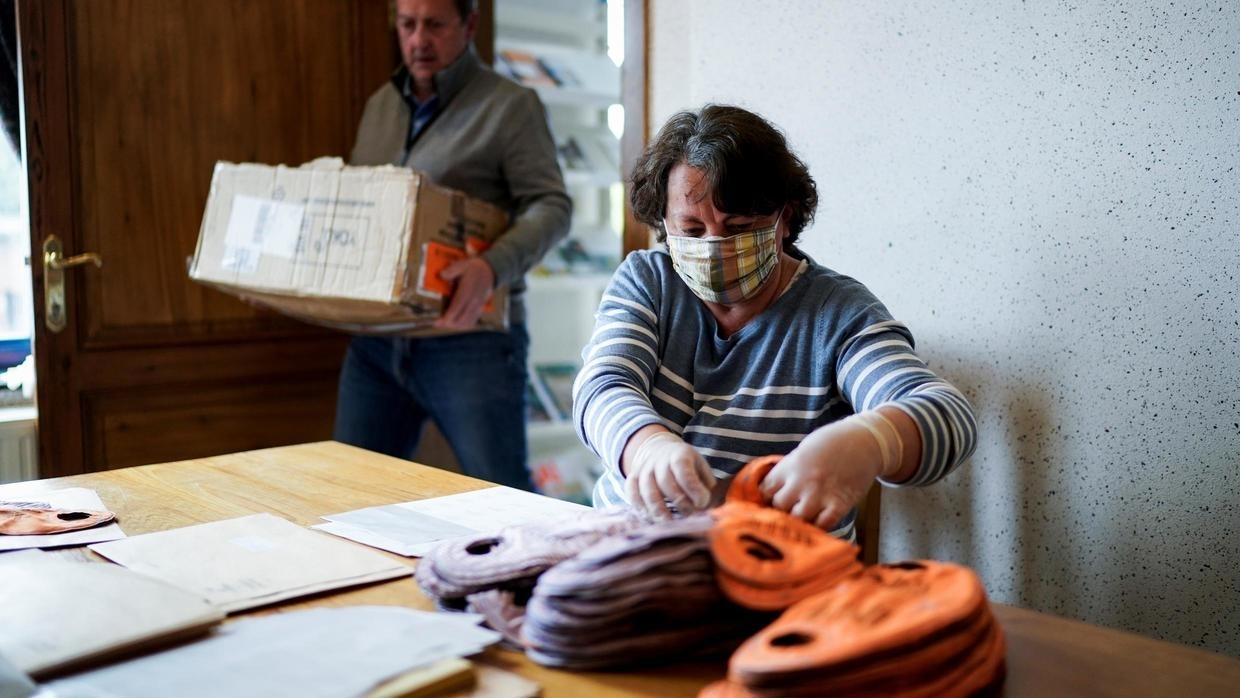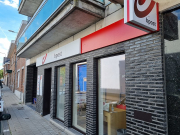
Belgium has promised every resident a protective mask from next week, when the country begins to phase out coronavirus lockdown measures.
With just days to go many doubt the authorities will hit their target, but town mayors like Yves Kinnard are taking matters into their own hands.
From Monday, when Belgium begins to ease its lockdown, anyone taking public transport will need to cover their mouth and nose.
The 55-year-old mayor in the small eastern town of Lincent has assigned 15,000 euros ($16,300) from the municipal budget to order masks.
Belgian firm YTS received the order for 3,500 masks on April 10 and now they have arrived, shortly before some workers and businesses will go back to work.
First, though, the masks must be distributed door-to-door before the May 1 long weekend.
Kinnard has secured the assistance of fellow elected officials and he used his official car to ferry the order 65 kilometres (40 miles) from the plant in Nivelles.
More that 7,500 Belgians have died in the outbreak, one of the world's highest per capita fatality rates in a population of 11.5 million.
- Local producers -
And there has been media scepticism about the capacity of Prime Minister Sophie Wilmes' government to deliver on its "promise without a strategy", as one outlet put it.
On April 24, she outlined a cautious plan to end the lockdown while enforcing some continued social distancing rules to head off a second wave of cases.
She promised that "each citizen would have at least a cloth mask" -- the simple barrier defences often being sewn together by volunteers and off-duty tailors.
She put no deadline on the vow, and sceptics noted that Belgium has already fallen foul of shortages in medical masks and been let down by some foreign suppliers.
This in turn has led to a number of initiatives by firms, individuals and local governments to fill the gaps, such that from YTS in Nivelles.
The firm usually prints on textiles for restaurants and hotels -- currently closed during the lockdown -- and had polyester to hand to relaunch as a mask-maker.
"We called back the team, and increased from seven to 15 employees," said Alexandre De Clerq, the manager. "We rethought the entire logistics chain."
YTS has now established the ability to produce 2,000 masks per day and has partnered with other workshops to share ist technique and make six times more.AFP







































